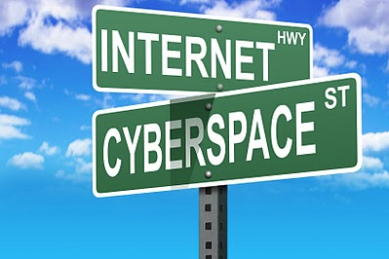Videogames (specifically urban/street games) create cross-cultural learning experiences, particularly for young people, growing up in a media-saturated environment. Different kinds of learning take place in videogames, which is said to influence young people’s perceptions of race, gender and ethnicity. The shift to a more digitalised and interactive culture is problematic in this sense because youth can now actively participate, rather than passively internalise discourses of race and gender, say, from a TV program (Everett & Watkins, 2008, pp141-142; Leonard, 2003, pp1-2).
‘No title epitomises urban/street gaming more problematically than the GTA franchise.’
(Everett & Watkins, 2008, p150)
The designs of urban/street games have very aesthetic and narrative properties. Developers bring in highly skilled designers to create a world that imitates popular perceptions of urban culture. For example, the radio in GTA is so popular because developers have called upon celebrity hip-hop producers, performers and radio personalities to voice the DJ’s on many of the stations. Artists and producers also help to select music for the game that will evoke ethos and energy of urban or “ghetto” life (Everett & Watkins, 2008, pp146-148). The setting is one of the vital aspects of how learning takes place in videogames. It teaches dominant attitudes and assumptions about race and gender; as they draw heavily from discourses that already circulate in mainstream media. These messages are then intensified through the appeal of interactive game play, and are achieved by providing graphically real and culturally authentic environments. Unlike school, where youth are more used to the system of “telling” and “doing”, gaming provides an immersive experience in an active environment rather than passive. Users work their way through the game via trial and error, engaging and exploring in the actual context of practice. Where television TELLS gender and racial narratives, videogames allow for active participation – performing and reproducing socially prescribed notions of gender and race through a dynamic process (Everett & Watkins, 2008, pp142-149; Leonard, 2003, p3).
This paves a way for how gamers, particularly the young, are developing their knowledge and familiarity with popular views of urban culture. Spatial environment becomes a culturally specific location that animates ideas of race, class and gender. It works ideologically to underpin notions of urban communities as deviant and dangerous. In Grand Theft Auto, the atmosphere has characteristics of socially and economically marginalised communities; graffiti-covered buildings, dilapidated housing, trash-filled streets, and background characters typically associated in petty crimes, drug deals and prostitution (Everett & Watkins, 2008, pp145-146).
 A gamers response to choosing a character in Grand Theft Auto V
A gamers response to choosing a character in Grand Theft Auto V
Designing characters in earlier videogames was restricted by technology. Now, they are able to easily portray racial characteristics through skin colour, body language and voice. However, even though videogame designers have the ability now with upgraded software and technology, depictions of gender and race are still very narrow and stereotypical. For example, the GTA series is populated by predominantly black and Latino based characters associated with crime, enhancing hegemonic views of black masculinity (Everett & Watkins, 2008, pp143-144; Leonard, 2003, pp5-6).
While it’s easy to say that videogames don’t force people to go out and imitate direct actions of violence and crime, it’s not so easy to make that judgement with the inherent depictions of racial ideologies. Because these representations are everywhere in the media, it’s not fair to say that videogames are responsible for constructing racial and gender stereotypes. While they are present, and aren’t probably helping… it’s still not justifiable to say that they are to blame.
References:
Everett, A & Watkins, C 2008, “The Power of Play: The Portrayal and Performance of Race in Video Games.”, The Ecology of Games: Connecting Youth, Games, and Learning, Cambridge, MIT Press, pp141-164.
Leonard, D 2003, ““Live in Your World, Play in Ours”: Race, Video Games, and Consuming the Other”, Studies in Media & Information Literacy Education, vol. 3, no. 4, pp1–9, viewed 26 March 2014 <http://mediastudies.viu.ca/dougstetar/courses/medi265/resources/articles/Leonard_LiveinYourWorld.pdf>


